Travel as escapism was a romantic concept when I was in my 20’s—I traveled differently then. It’s easy to forget the problems of your life when you literally uproot yourself for two or three months, when you spend every night along the way in spartan or even sketchy sleeping quarters, eat sparingly, proceed without a set plan and disconnect for days or even weeks at a time.
I can’t do that anymore—travel like a vagabond, or to escape the traumas of my daily existence. I wished I could three weeks ago today, when I found myself in an Uber bound for Taiwan’s Taoyuan Airport at a quarter to five in the morning. Indeed, I was firing off a dramatic text to my quasi-ex, deliberately sabotaging the capacity of my two weeks in Kyushu to bring me back to emotional homeostasis before my flight even left the ground.
That evening at Atago Shrine, clad mostly in black as the blue hour set in over Fukuoka, I questioned whether my heart has actually grown or changed over the past decade, as I’ve transformed from a backpacker into something bougier.
It had been a long time since I found myself so emotionally entangled. Years, in fact. By late July of this year, when I made the acquaintance of this man—let’s call him “K”—I actually believed myself impervious to the infatuation that had so often crippled me during my youth.
But while my body was eating at the yatai food stalls of Hakata, scaling the tenshu of Karatsu Castle, saying prayers at Yutoku Inari shrine and traipsing through the center of Nagasaki, where tens of thousands of people had once been incinerated in an instant, my awareness was scratching on his damn door. When he replied to me three days into the trip, I filled with so much hope that I’d have launched myself all the way back to Taipei with it, if he’d asked me to.
The fucked-up thing is that I could not have asked for a better trip. Every sky was deep blue and cloudless; every day crisp and every evening balmy enough to get by with a light—and stylish—jacket.
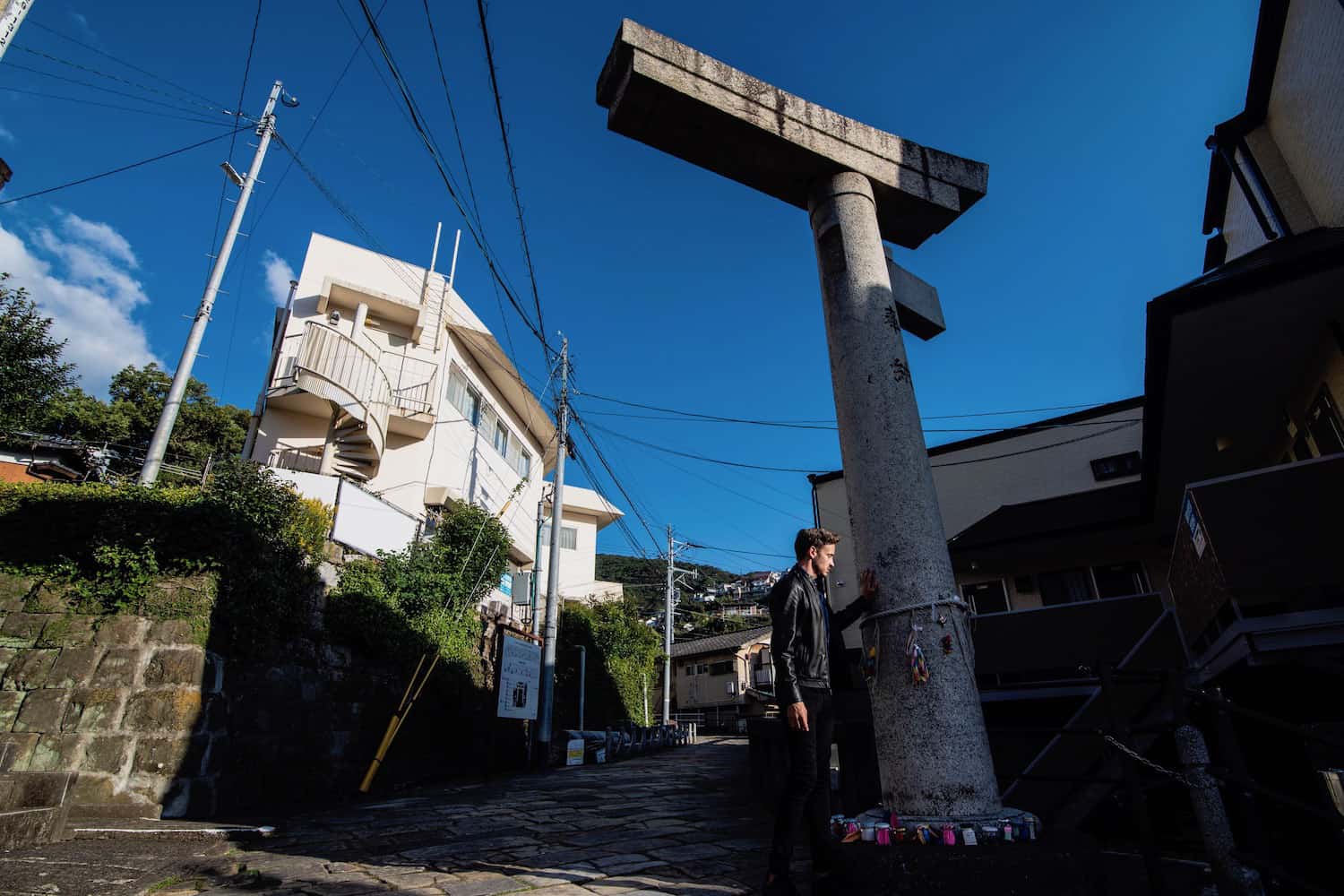
This was the first trip I’d taken to Japan where I could truly say “yes” to any experience or meal or activity and not worry about its financial impact, and I did. Upon finishing my morning at Kumamoto Castle, I plopped my ass down at a donburi shop that’s semi-famous for selling semi-famous “red” wagyu, and thought so little of the ¥2,200 price tag that I also ordered a highball to wash it down.
Frankly, I was meeting plenty of handsome Japanese strangers, many of whom pursued me more aggressively than K ever had. It was the perfect trip—but I was in the perfectly wrong state to capitalize on it.
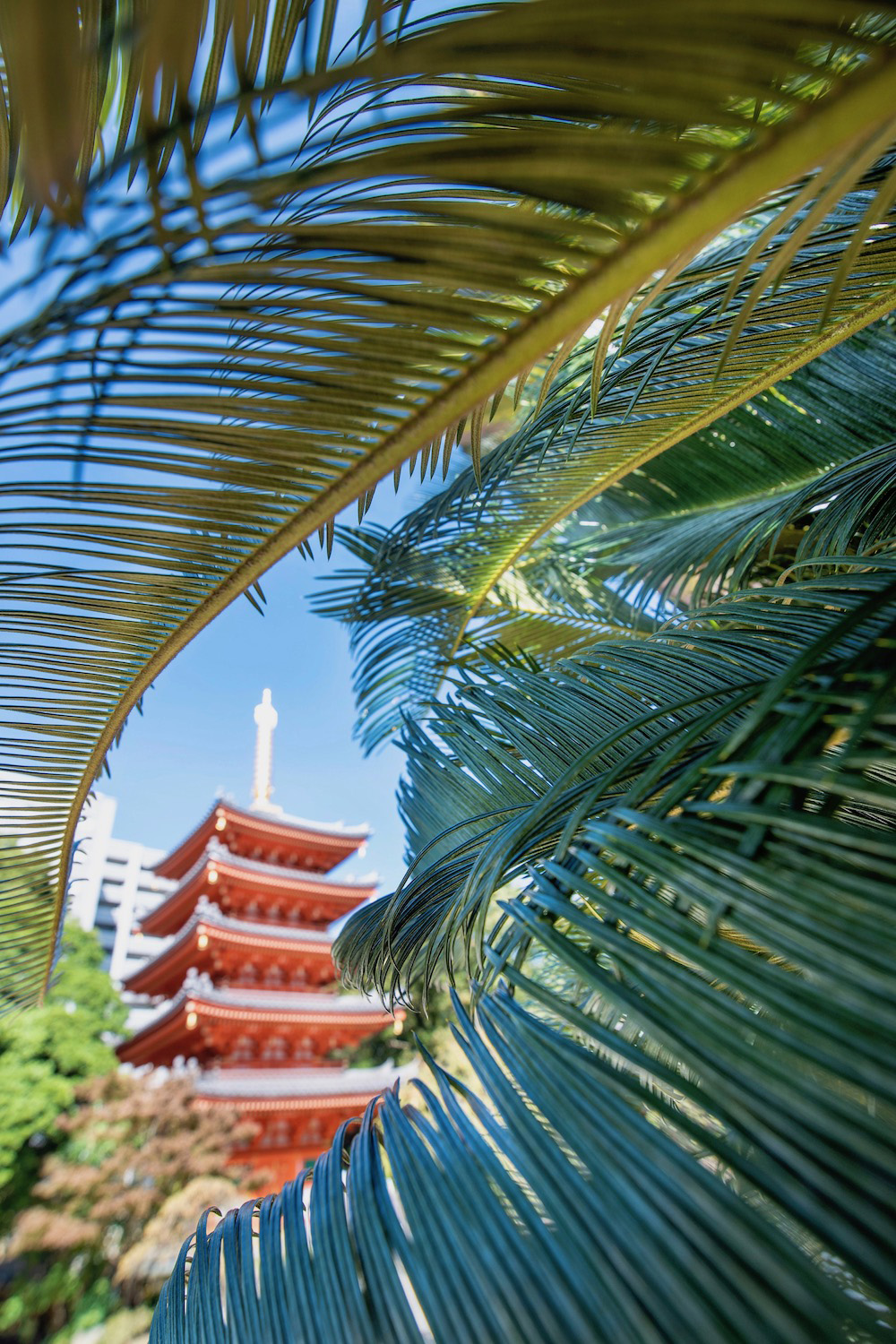
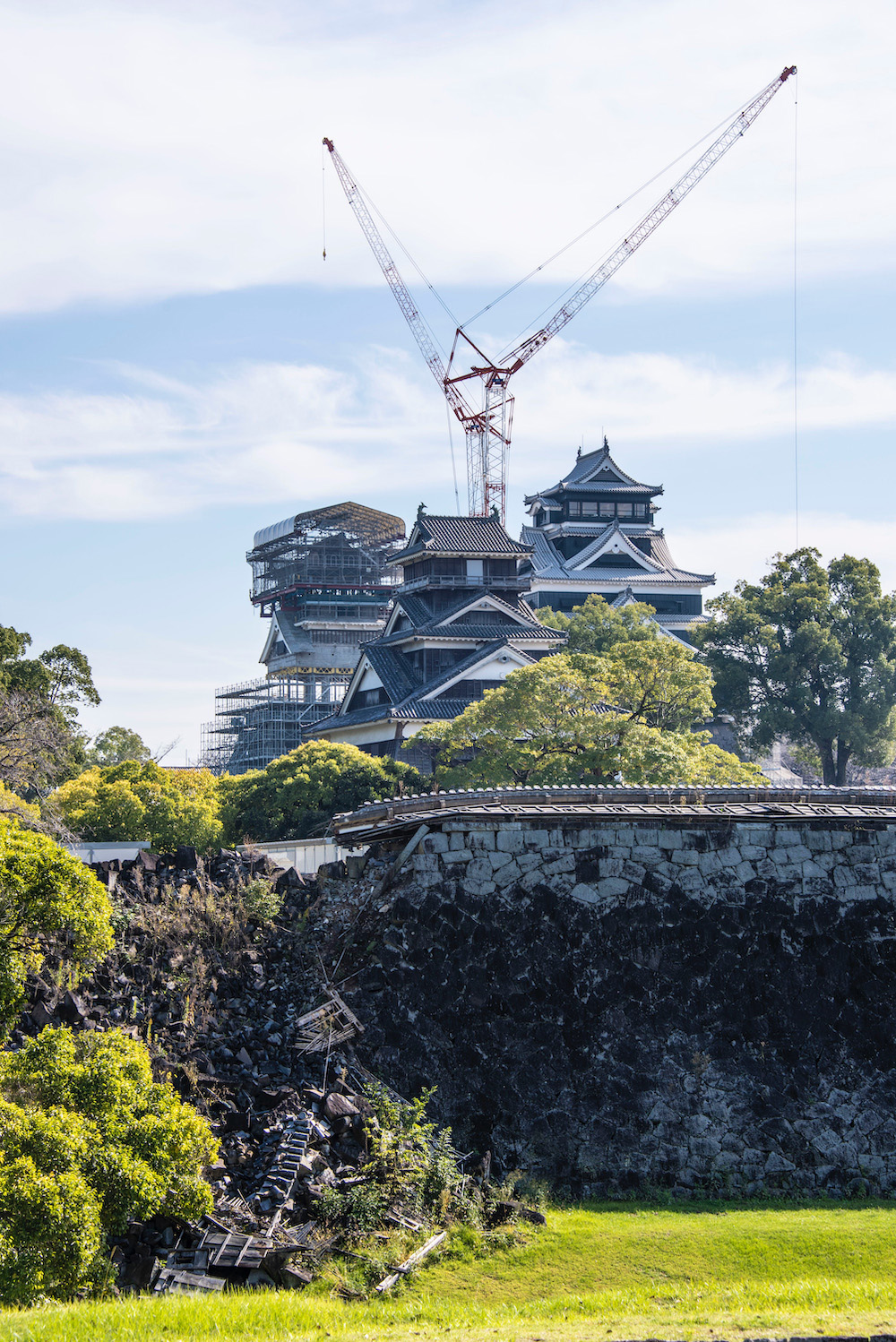
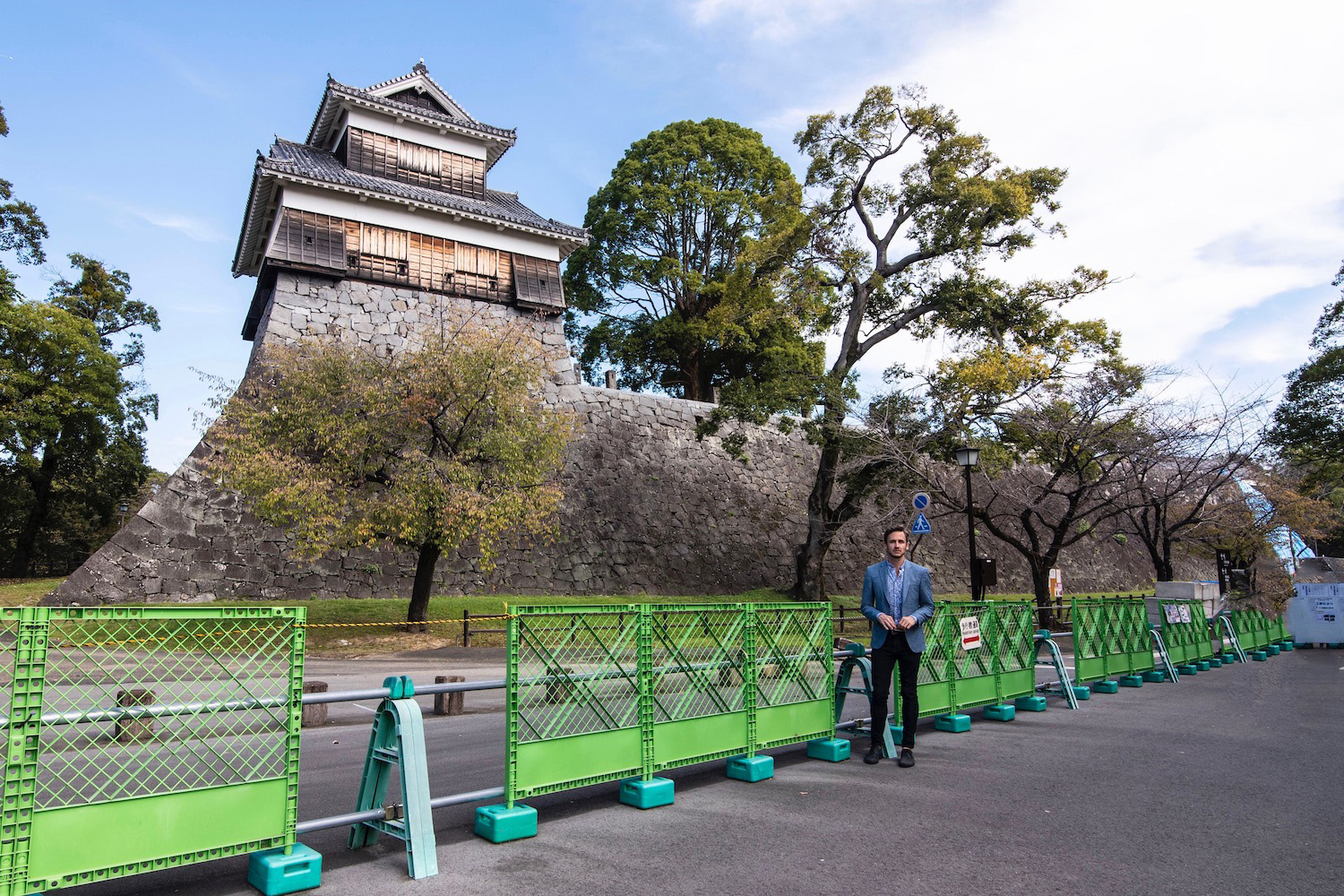
Denial is a powerful drug—the bomb K dropped on me before I left Kumamoto sobered me. He had reached back out to me, it seemed, not because my message had actually moved him, or because he thought one of the paths forward I cited within it might be acceptable for him.
No, get this shit. He had apparently started dating someone else after (or, more likely, before) we parted ways, and that person had done him like he did me. He was not only seeking my advice about how to deal with his disappointed but, seemingly, my shoulder to cry on. I told him I was sorry he had to go through this, but that was a lie. He told me to let him know if I changed my mind.
Fittingly, my Sunday at Mt. Aso was the first cloudy day of my trip up to that point. Only I wasn’t sad, as I usually am when the blue skies I so love are obscured. I was furious, as if I could erupt any minute like the volcano beneath my feet. On what planet is it acceptable to seek solace from the very person you stole it from?
The next day, upon arriving in the hot springs city of Beppu, I took a literal trip to hell—seven of them, in fact, at least if you go by the literal translation of the jigoku that dot the town center. Unfortunately for me, I didn’t meet Satan; at Kifune Castle I did meet a strange tour guide, who offered to cleanse me of my evil spirits, but thoughtlessly declined, I guess because I thought it was too good to be true.
What kind of possessed person declines a free exorcism? I scolded myself as I fell asleep tortured that night, apparently having forgotten the plot of every demon movie in history.
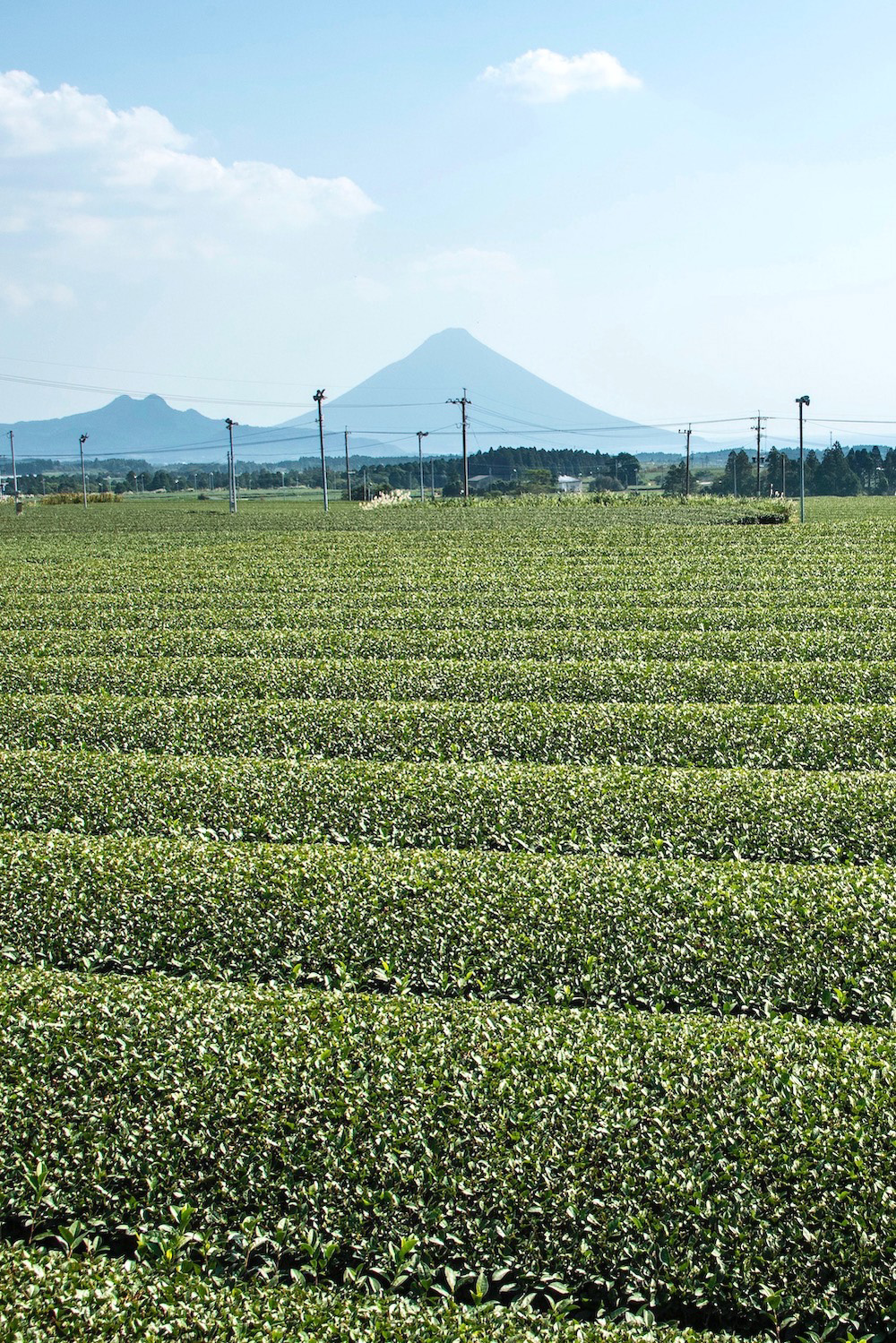
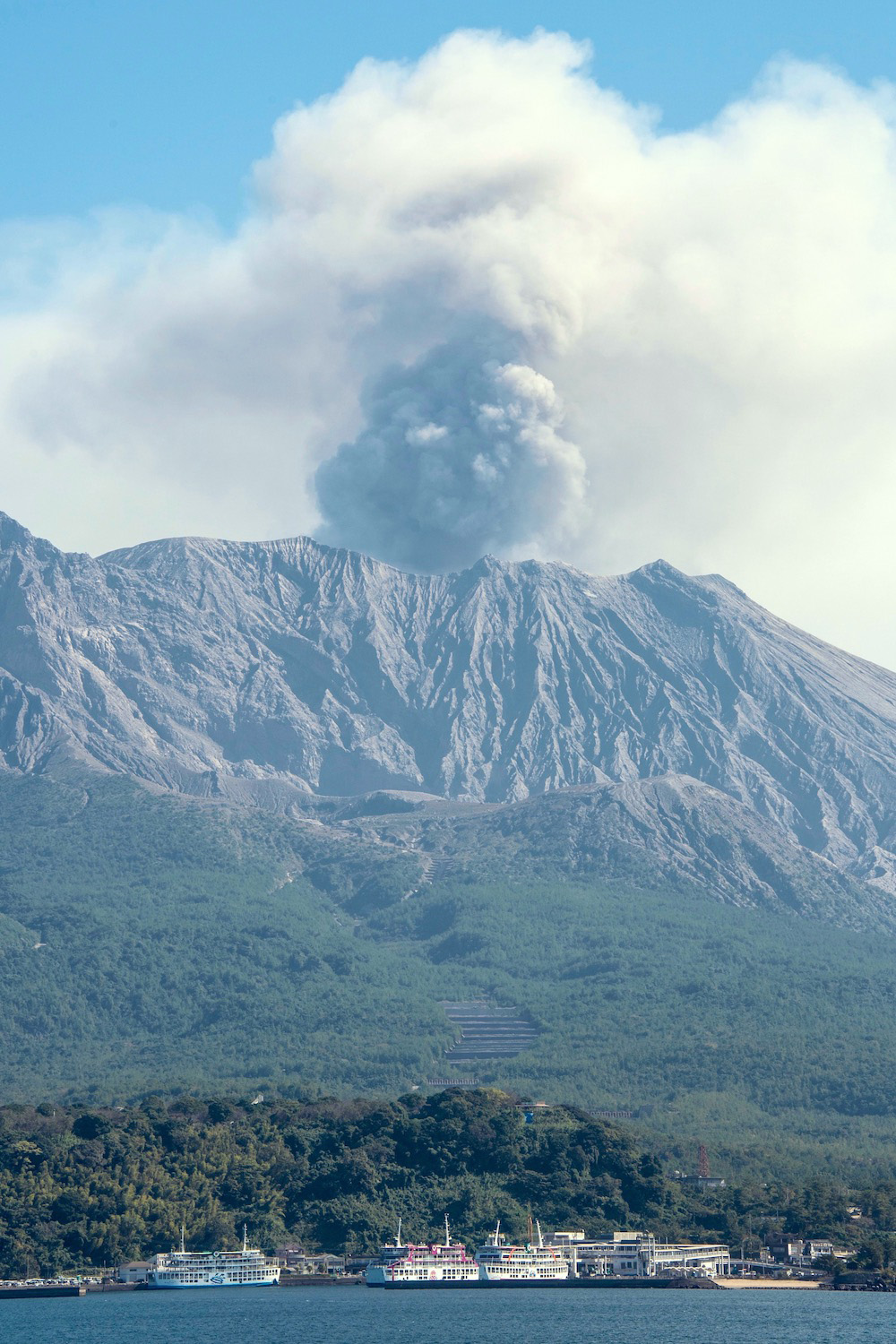
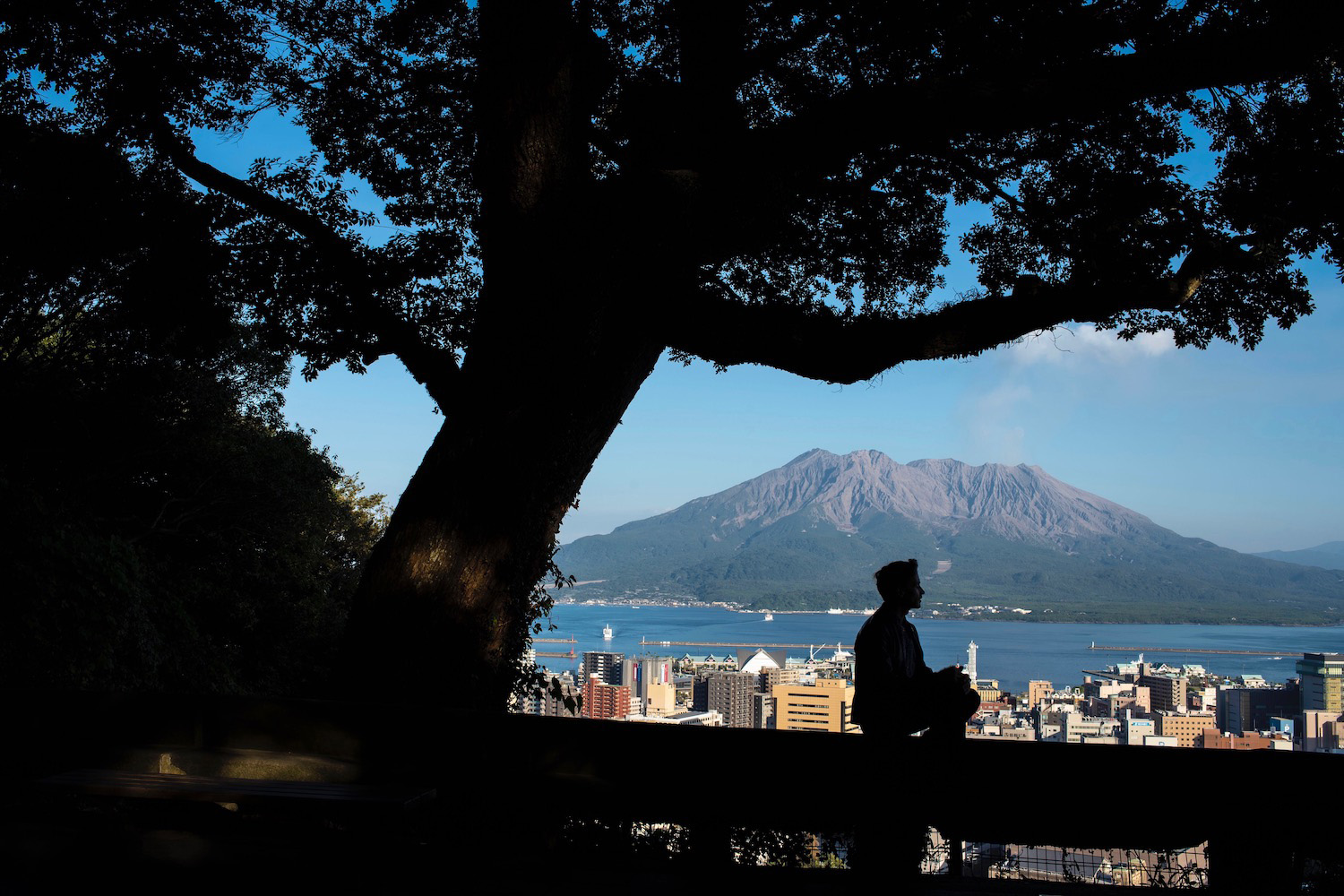
Ironically, the emotional cloud of K’s disappointment (he’d also confessed that his physical and sexual attraction to me gradually waned during the time we dated, two months he didn’t considered “dating,” in retrospect) began to lift the very next morning, as I rented a car and drown northeastward onto the Kunisaki Peninsula. It’s difficult to pinpoint whether it happened in the former Samurai town of Kitsuki, or at the Futago or Usa Shinto shrines in the peninsula’s forested center and brightly-lit northern coast, respectively, but it also felt wrong to question it.
By the time I emerged from the 80s-chic railway station of Miyazaki and onto its palm-shaded bus plaza the morning of my second Thursday in Kyushu, I felt as close to normal as I had since at least before I met K. The anonymous Izakaya where I ordered oyako-don for lunch even offered me a free gin and tonic with my lunch. (I later learned that this was customary, though it still put me in a celebratory mood.)
Yet as the days passed (some were important milestones—the 10-year anniversary of my having moved to Shanghai to teach English; 11 years since my beloved childhood dog died), a cloud hung heavy over me, not unlike the one over Takachiho Gorge as I photographed the boats crowding its waterfall.
It was sick, really. I had the good fortune to meet an extremely attractive marathoner from Hong Kong at Shiroyama Observatory in Kagoshima and, after watching Sakurajima erupt right at sunset with him, followed up a steamy encounter at my hotel with bites at the city’s own yatai area and drinks inside a tachinomiya standing bar his friend owned. It was an evening—it was serendipity—most travelers would kill for.
But as I drove to and around the Satsuma Peninsula the next day, whether I was walking along the manicured hedges of the Chiran district or admiring the perfect cone of Kaimondake volcano rise above Ei’s pristine matcha fields, it became clear to me that I hadn’t really resolved anything—I’d just buried it, like one of the tourists in the Saraku “sand bath” in Ibusuki.
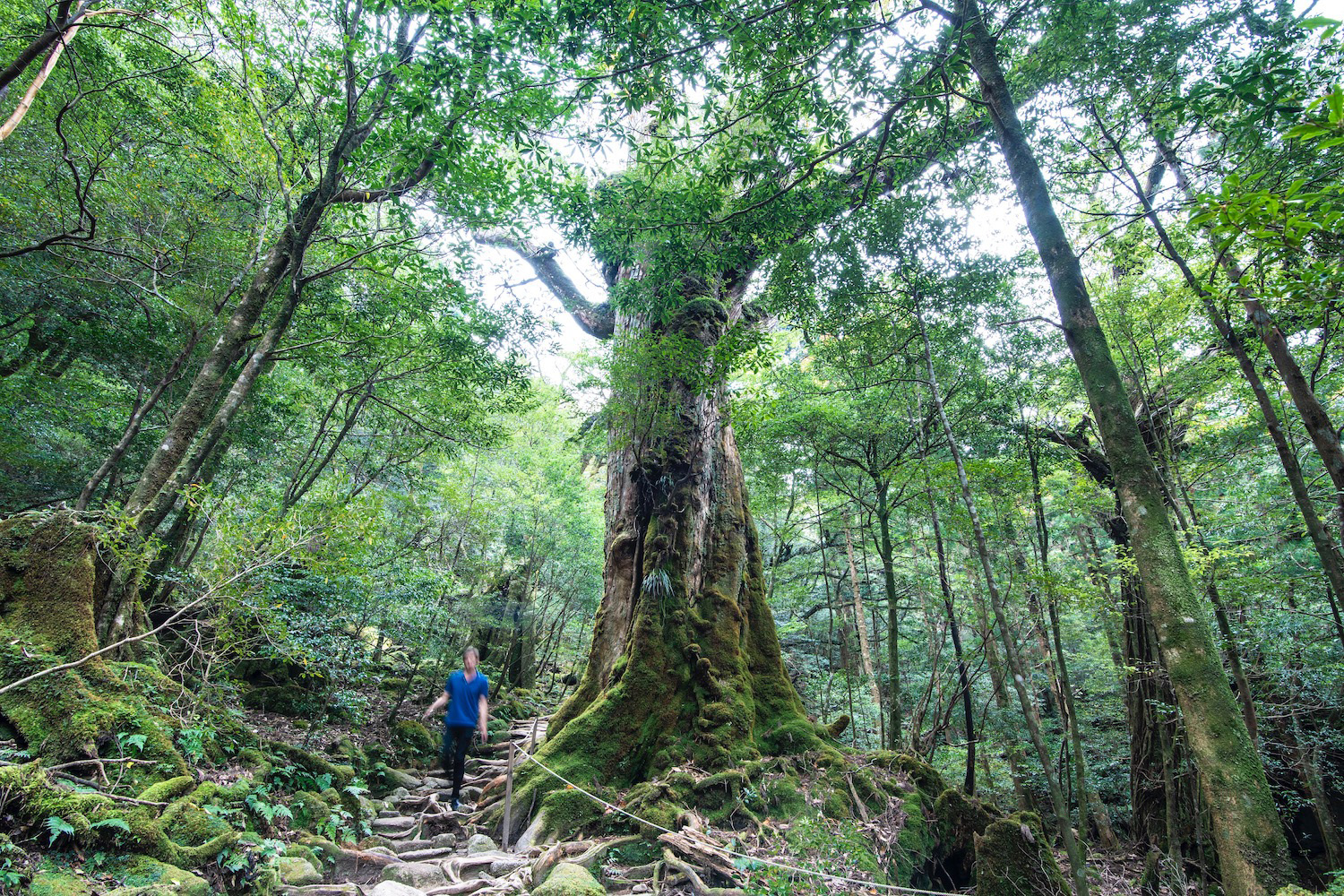
My most extensive Kyushu trip to date ended on the outlying island of Yakushima, where I’d actually spent some time on my very first visit to Japan, nearly six years earlier. It was a somewhat anti-climactic epilogue, less because I still felt well-oriented there, and more because the towering cedars that had seemed so mesmerizing back then were so quotidian to my current, weary eyes.
Two weeks and a day had passed, and in my previous life as an escapist traveler, I’d have moved far beyond my fantasies of a future with K. I might not even have remembered him at all, had this trip been two months and a day instead.
Sometimes, moving forward is more important than moving on—accepting reality, even an ugly and sick version of it, is more productive than making a false claim of transcendence. The first thing I did upon arriving at Taoyuan Airport was text K; he replied immediately. This isn’t going to end, I admitted to myself as the train sped toward the city—toward him, until we completely destroy each other.

Robert Schrader is a travel writer and photographer who’s been roaming the world independently since 2005, writing for publications such as “CNNGo” and “Shanghaiist” along the way. His blog, Leave Your Daily Hell, provides a mix of travel advice, destination guides and personal essays covering the more esoteric aspects of life as a traveler.








